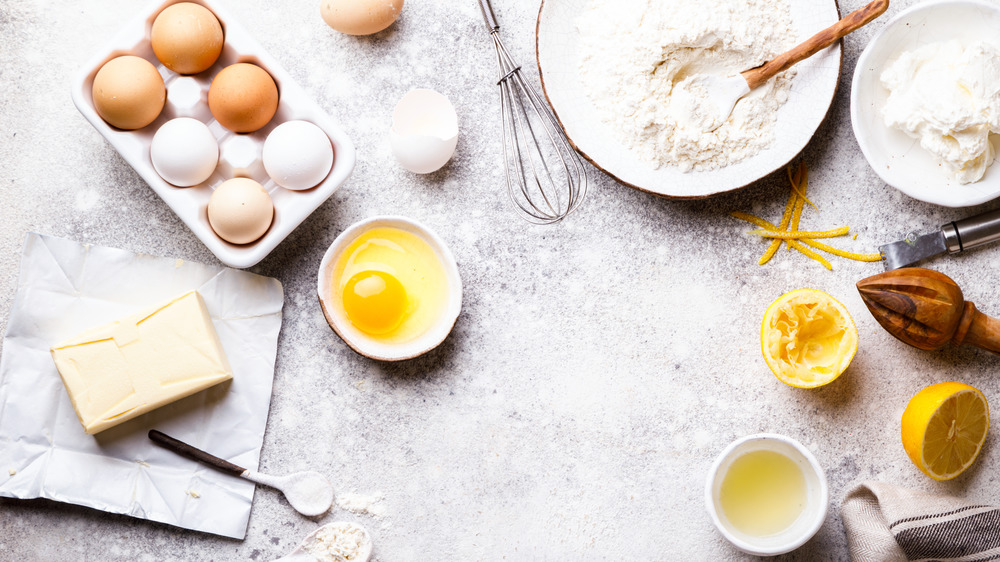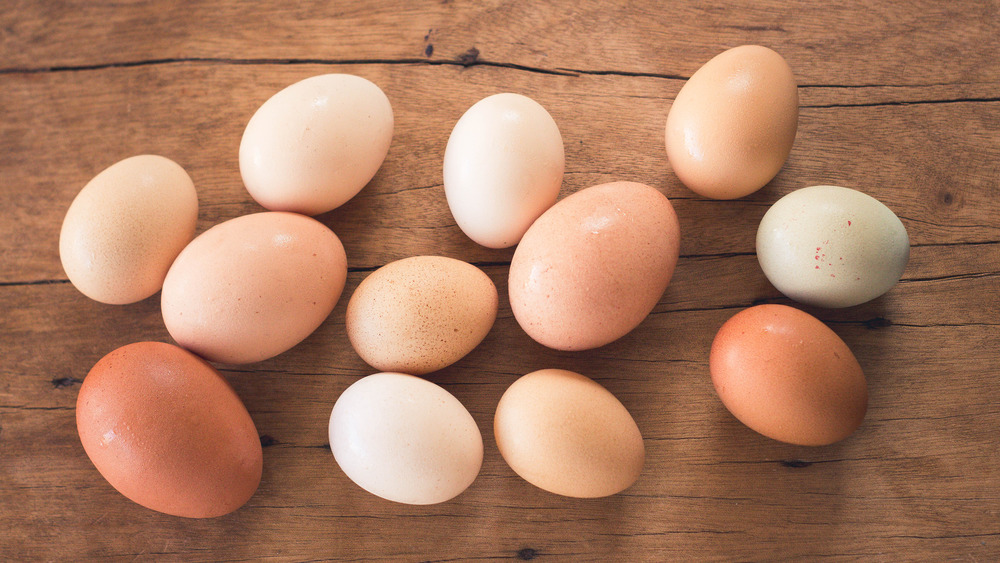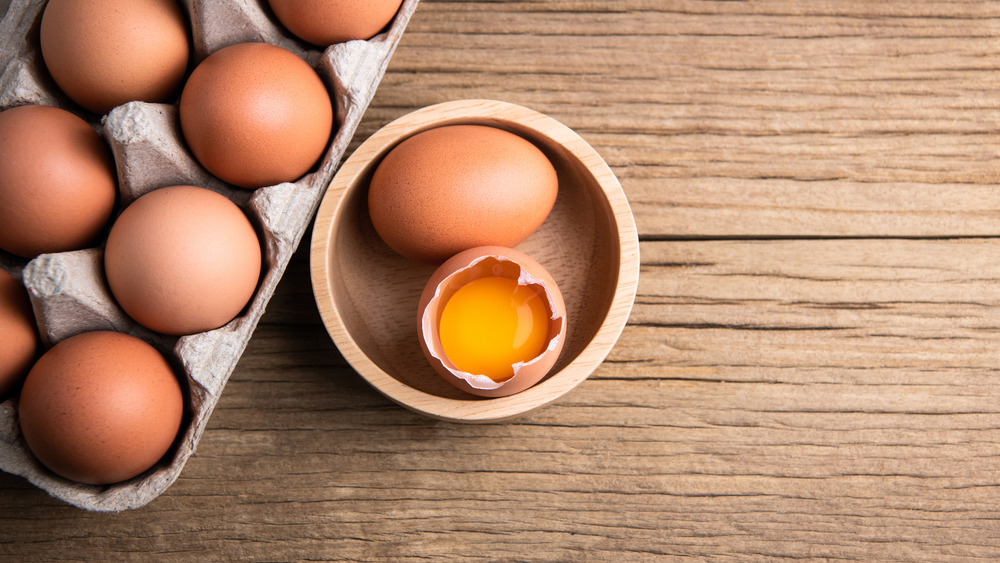The Big Mistake You Might Be Making When Baking With Eggs
We all know baking is science and choices like which flour to use and whether to opt for baking soda or baking powder can make or break an entire batch of goodies. But, you may be surprised to learn that if you've ever pulled a disappointingly dense cake from the oven or bitten into a boringly bland homemade pie, your choice of eggs could actually be to blame.
Sure, it can be tempting to reach for whatever size or sort of egg you have on hand, regardless of what the recipe calls for. But, Mashed checked in with Jocelyn Drexinger, a baker at the certified-humane egg producer Nellie's Free Range, and the owner of the New Hampshire bakery Mint and Mallow, and it turns out the eggs you choose can have a big effect on the taste and texture of your baked goods. So, before you risk another calamitous confection, read on to understand the mistake you might be making when baking with eggs and what to do about it.
Choose the right size egg for the recipe
First things first, egg size matters when it comes to baking. Drexinger explains, "Eggs provide both volume and structure to all baked goods. If you don't have enough egg in your batter, you won't be able to incorporate enough air into your baked goods, and this issue will be exacerbated by the fact that your batter will be thicker due to the lower ratio of liquid to dry ingredients. This will result in a dense, under-risen, sunken, or even crumbly texture depending on your particular recipe." She adds, "Alternatively, if you have too much egg in your batter, you could have an overly spongy or even rubbery texture."
So, if your recipe specifies a certain size of egg to use, make sure you follow that to the letter. As Mel's Kitchen Cafe points out, the weights of different sized eggs can vary more than you might think. When compared, it turns out medium and jumbo-sized eggs can differ by as much as 0.75 ounces and large eggs can weigh .20 ounces less than extra-large eggs. Substituting one size egg for another could mean the difference between fudgy versus cakey brownies (and we all know when it comes to brownies, go fudgy or go home). If your recipe doesn't specify what size egg to use, Mel's Kitchen Cafe advises opting for large eggs.
High-quality eggs equal better flavor
While size is certainly important, Drexinger says the quality of your eggs can affect the taste and texture of your baked goods, too. There are a lot of fancy-sounding labels and marketing ploys out there that can make deciding which type of eggs to buy confusing but Drexinger has some advice on what to look for. She says, "Try to find farm-fresh, free-range eggs like Nellie's where the hens are able to enjoy the bugs, grubs, and greens they find while roaming in the fields; this makes for a healthy, varied diet that translates to more nutrient-rich and flavorful eggs."
Eggs offer some visual cues when it comes to their quality as well. Drexinger explains, "The deeper the color of the yolk, the more flavorful it will be," and that can make your baked goods taste that much better. Another clue to quality? Drexinger says, "The freshness is also apparent in the thick whites and sturdy yolks, and that sturdiness will translate into a better structure for your baked goods." So, the next time you're channeling your inner Great British Baking Show contestant or are going all-in on a Christmas cookie-baking bonanza, reach for the right-sized eggs of the best quality, and your results are sure to please even the savviest sweet tooth.


